Former neo-Nazi: Trump’s message parrots my old propaganda
A reformed neo-Nazi says President Trump is partly to blame for legitimizing the white nationalism that exploded in Virginia last weekend.
Chuck Leek, 49, of San Diego, was involved in a number of racist skinhead groups, including the White Aryan Resistance and the Hammerskins, from roughly 1987 until 2001, and spent time in prison for assault with a deadly weapon.
In the aftermath of the violence in Charlottesville, Va., Yahoo News spoke to Leek about his history with white supremacy, the rise of the alt-right and what he thinks caused it.
“The message [Trump] was putting out during the election cycle absolutely parroted in a lot ways the message that we were putting out when we were Nazi skinheads trying to recruit people to that cause,” he said.
Leek’s old talking points included blaming immigrants for the problems of native-born Americans, pushing for the construction of a border wall and singling out Muslims.
“It was a thinly veiled appeal to that white nationalist sentiment. It’s something that I felt until recently was on the decline,” Leek said.
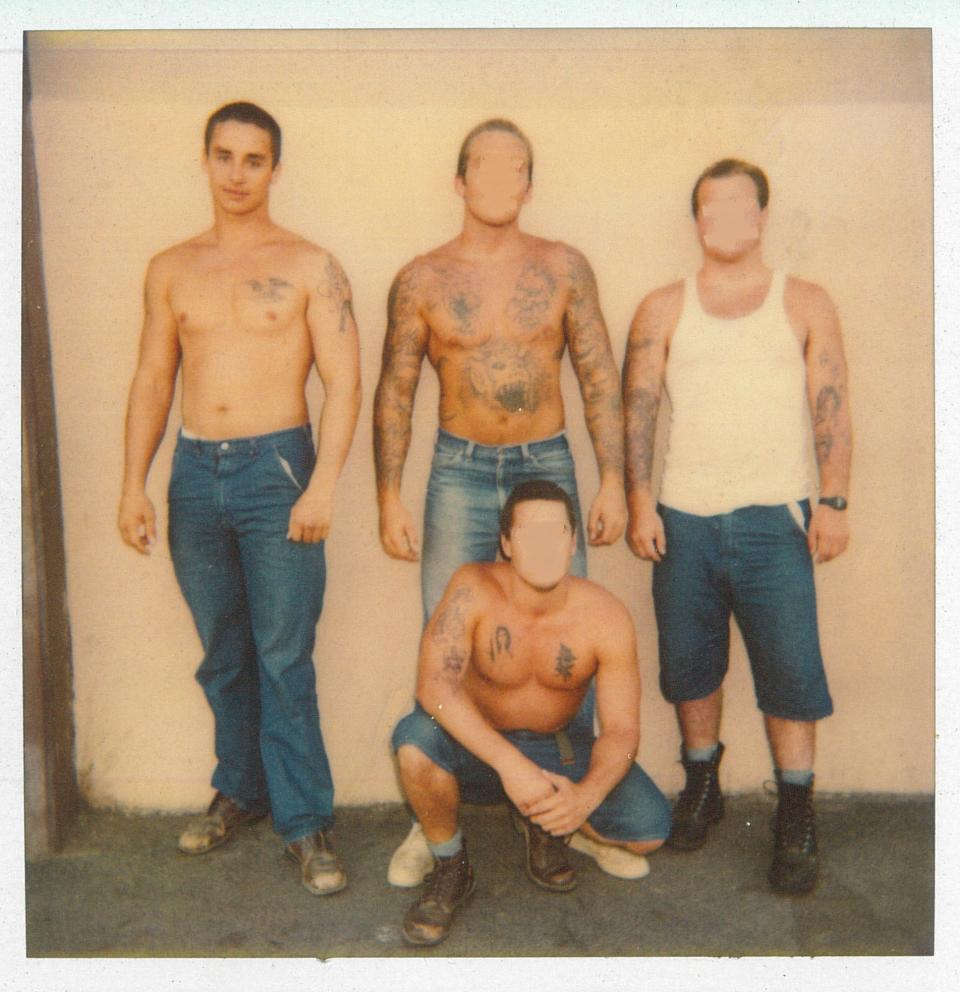
With the election of Barack Obama as the nation’s first African-American president in 2008, there was a lot of “doom and gloom” chatter among far-right groups. But that mostly died down when their prophecies of doom and gloom and “the end of the world” didn’t come true, according to Leek.
“It seemed to me that until the last 12 to 18 months that the movement had basically died,” he continued. “At the most basic level, I think they’re being encouraged by what they’re seeing at the highest level of our government right now — the president. He isn’t discouraging that type of behavior.”
Trump is quick to condemn anyone who insults him, but critics say he’s been dragging his feet when it comes to denouncing white supremacists committing violent acts in his name.
“It’s been validated a lot through this whole campaign, but especially since the inauguration: our president’s inability to really come right out and say that it’s wrong,” Leek said.
He first got into white supremacy through punk rock. In the mid to late ’80s, Nazi punk was blowing up in the U.S. hardcore punk scene. It contrasts strongly with most punk subculture, which is anti-authoritarian, values individualism over conformity and often promotes liberal politics. Racist skinheads with ties to biker gangs introduced Leek to white power symbolism, which ultimately led to his involvement with the White Aryan Resistance.
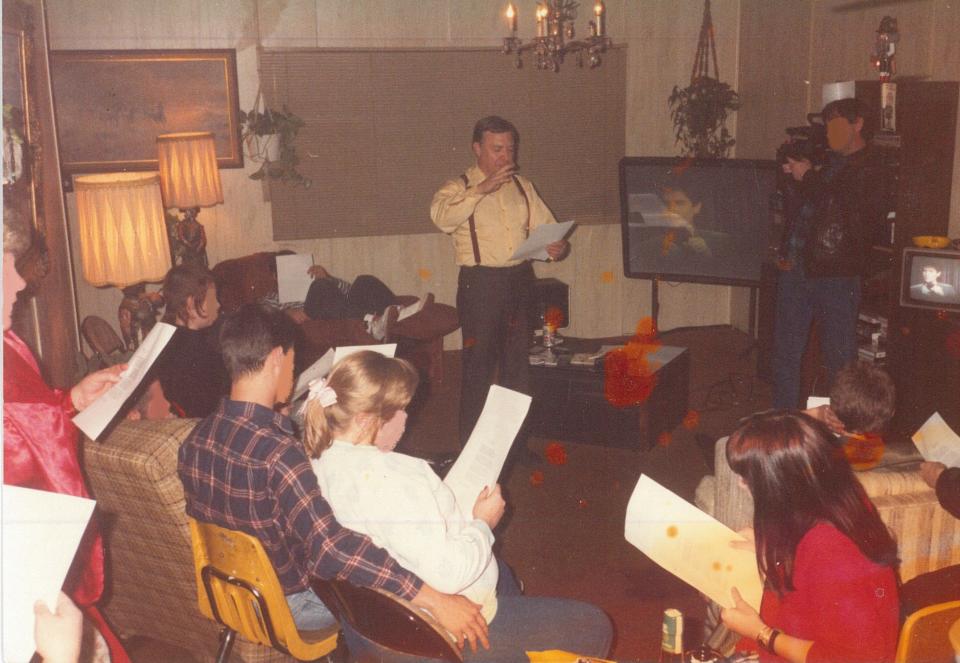
Tom Metzger, a former grand dragon of the KKK, founded the White Aryan Resistance in the mid-1980s, and it quickly became one of the leading white supremacist groups of that period. Leek once went to Metzger’s house to hear him speak and sing Christmas carols.
Afterward, he joined the Hammerskin Nation, which is one of the best-organized neo-Nazi skinhead groups in the country. The Hammerskins promote racist hardcore music, and Leek sang in one of these bands, Battle Axe, in the ’90s. He said some of his lyrics sounded like things that Trump would say in speeches. He recalled some lines about immigrants “flooding our nation,” for instance.
After his first marriage with another skinhead fell apart, he started seeing another woman from another country who had no connections to the skinhead scene. About a year into dating she met some of his biker skinhead friends. At that point, she told him that she was half Jewish and gave him an ultimatum: “It’s me or them.”
“I was stunned. But then I thought about it for a minute while we were sitting there and realized that I didn’t really care about that as much as I cared about her,” he said. “I picked her and basically cut ties with those people, but my thought process hadn’t really changed.”
They got married five years later, and stayed together for another eight. During that time, Leek started to read the Bible and worked on improving himself. During his white supremacist years, he believed in the anti-Semitic theology of “Christian Identity,” which had a tremendous influence on the racist right in the 1980s, but now he believes in the mainstream Christian values of love and compassion.
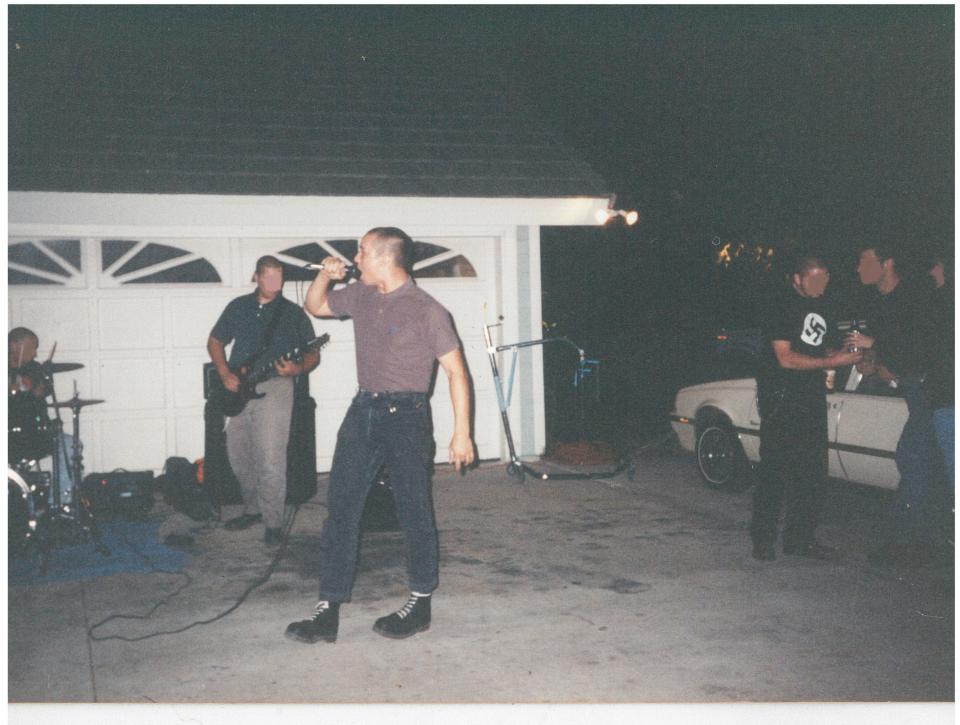
“I started questioning all of that through reading what the Bible actually says instead of the little bits and pieces they take to distort it. After being with her for eight or nine years, I really started to change my thought process,” Leek said.
They eventually divorced. It was traumatic and painful. Leek sought counseling and tried to understand the rage and hate that he carried inside. During his transition, Leek recalls, he had an epiphany while sitting in traffic, feeling frustrated in southern California.
“We’re all just people trying to get through our lives the best we can,” he said. “Nobody is better than anybody, really, in the grand sense of things.”
Leek reached out to former white supremacist Frank Meeink on Facebook after reading his book, “Autobiography of a Recovering Skinhead.” Meeink introduced him to a group called Life After Hate that fights racism and works to de-radicalize people in the violent far-right extremist movement. Through Life After Hate, he connected with other former racists who helped him see how he could embrace a new life and work to “reverse the harm” he did in the past.
Before leaving the White House in January, Obama awarded Life After Hate a $400,000 grant as part of the Countering Violent Extremism Task Force. But the Trump administration rescinded the grant in June.
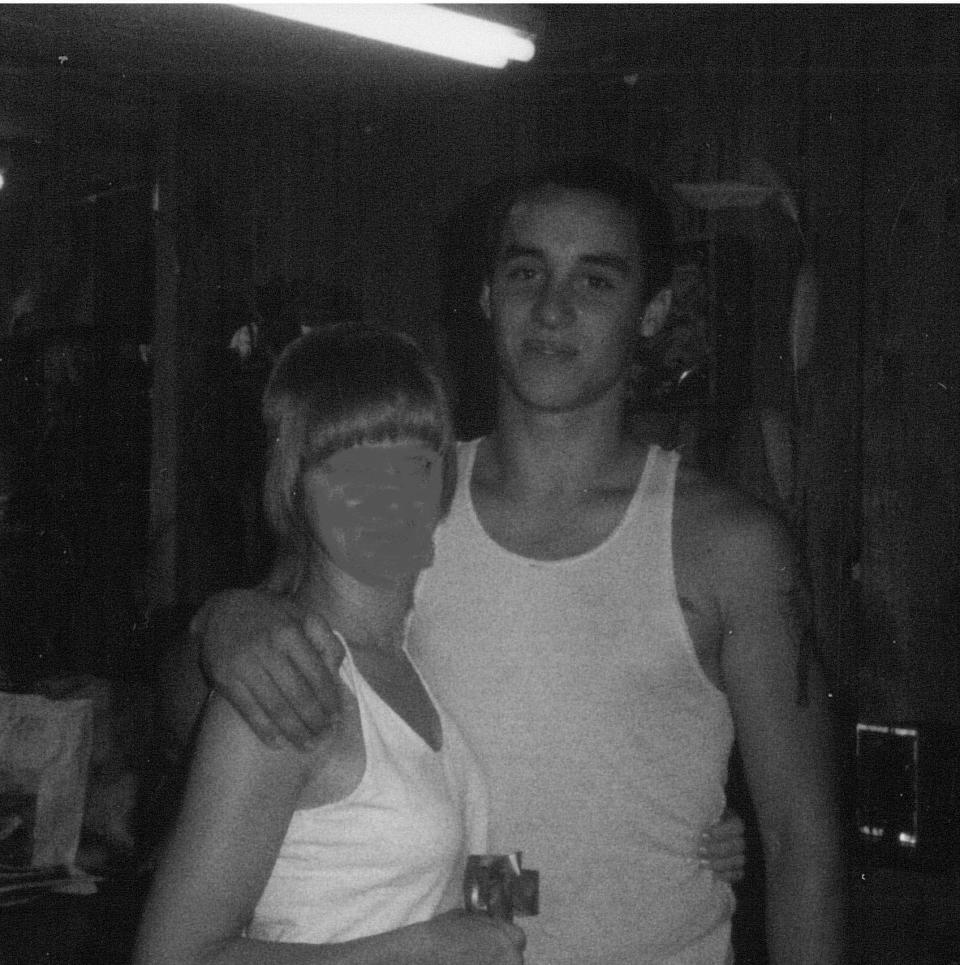
Unlike most Americans, Leek has personal insight into why disaffected young men would embrace white nationalism. Just like everyone else, he saw the pictures of young white men marching on the University of Virginia’s campus last Friday holding tiki torches, protesting the planned removal of a Robert E. Lee statue.
In Leek’s experience, these men have often gone through some kind of trauma and latch onto hateful movements to show the rest of the world that they have “some kind of belonging and power.”
“These are frustrated young men, and they’re not being provided proper guidance to deal with their frustration,” Leek said. “I think that when the administration is pointing its fingers at people outside the country and saying, ‘Your problems are their fault’ and targeting those people, it provides people [with] an example of how to act toward them. Rather than having it be stigmatized, they embrace it and run with it.”
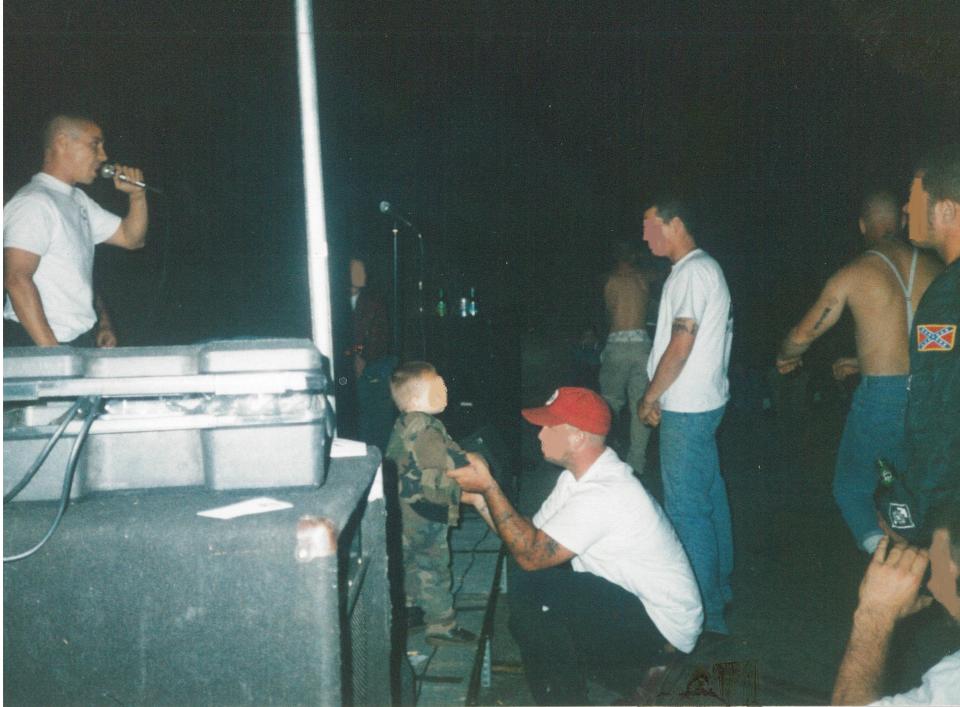

Chuck Leek today:

Read more from Yahoo News:
At service for Charlottesville victim Heather Heyer, a call for ‘righteous action’
After Charlottesville, both Bush presidents denounce ‘hatred in all forms’
U.S. cuts grant for group that seeks to deradicalize neo-Nazis
‘One side is racist’: Romney, other Republicans rebuke Trump’s Charlottesville hedging
Photos: Here are the ‘beautiful’ Confederate monuments Trump wants to stay put


